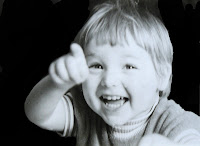So this post and possibly even a series of posts is about happiness. I was triggered to write it as I started to follow this Coursera course on A Life of Happiness and Fulfillment: https://www.coursera.org/learn/happiness
To see all the posts in this series go to http://lublenok.blogspot.com/search/label/ALHF
By the way, this free online course of study, consisting of video lectures and assignments, is just starting, so please consider joining it if you feel like it (the course officially starts on December 21, so there is plenty of time to join). It even has English and Ukrainian subtitles!
Why I joined this course?
Well, happiness is probably what all people, including myself, strive for, be it consciously or unconsciously. Especially in these dark winter months, when I experience lower levels of energy and satisfaction, it is good to get a deeper understanding of happiness, how it works, what is conducive to happiness and what makes us unhappy, and all of this based on the latest scientific research.
A note of caution: It looks like most of the contributors to this course and researchers cited in it come from business schools and marketing departments. This makes me somewhat suspicious, as I generally distrust marketeers. But nonetheless I would like to give it a try :)
Week 1 of the course:
- Explains how the course came about: basically, the guy was teaching other classes in marketing and came up with the idea for this course and it became a great success with his students, so he decided to create a massive online open course (MOOC) on Coursera.
- Explains how happiness can be measured and concludes, based on scientific evidence, that people's self-assessment of how happy they feel is a pretty good measure of happiness and correlates well with other happiness indicators.
- Introduces a balloon metaphor: happiness is like a balloon! You pump it with good air and you feel lighter and uplifted. Or you make holes in it and you deflate and feel down.
- Introduces the idea of 7 Deadly Happiness Sins: these are the holes in the balloon, things that make us unhappy, the more of these sins we commit, the more holes we get, and the more frequently we commit them, the bigger the holes.
- Introduces the idea of 7 Happiness Habits: these are like pumps, the more pumps and the bigger pumps we have, the bigger our balloon gets, the more happy we are.
- Explains how the course will work: every week a new deadly happiness sin is introduced, then a happiness habit is brought in as antidote to the sin, and there are exercises to practice and strengthen the habit.
Definitions of Happiness
The assignment for week 1 is to come up with your own definition of happiness and what kind of things make you happy. The definition does not need to be perfect. It's just a starting point.
Some examples of how happiness can be defined are given such as:
- Happiness as sensory pleasure
- Happiness as hubristic pride (sense of arrogance, being better than others)
- Happiness as authentic pride (pride based on achievement)
- Happiness as love/connection
- Happiness as abundance (feeling that you have when you feel you have everything you need)
- Happiness as joy
- Happiness as a feeling of serenity
- Happiness as a feeling of interest (engagement, curiosity)
- Happiness as amusement/laughter
My definition of happiness
Here it comes, imperfect as it is:
To me happiness is associated with a profound feeling of interest in all kinds of things, curiosity, learning, problem solving, productive and creative activity, self-discipline, connecting with people on a deeper level, connecting with nature, seeing beauty in all kinds of phenomena, and a great sense of satisfaction, achievement, energy and joy that comes with all of this, but not when this is taken out of proportion when it becomes a perfectionist obsession at the expense of love, caring, compassion and other people.
I am quite competitive, so my trap is wanting to be better than others (hubristic pride), and indulging in too much learning, practice and other activities at the expense of other important pursuits, such as family, personal finances, caring about others, etc. Wanting to understand as much and as deep as possible, to learn about new things all the time, and striving for perfection sometimes makes me unhappy, because there are so many things to know and perfection seems so far away.
It is very likely that this definition will change as I proceed with this course, and I am curious what it will be by the end of the course in 6 weeks or so.
What makes me happy
The second part of the assignment is to identify what makes me happy, what evokes the feeling I call happiness:
- Getting-up early
- Learning, practicing what I learn
- Solving problems associated with what I learn or what I work on
- Reading, watching video's, talking to people about what I learn and what they learn
- Linking new knowledge to what I already know
- Creative, productive work at work (programming) and at home (writing)
- Appreciating beauty in all kinds of phenomena and making beautiful things
- Physical exercise in the open air (bicycling, soccer, running, table tennis)
- Reading good literature
- Singing
- Being with my daughter
My next post will be about the first deadly happiness sin (devaluing happiness) and the first happiness habit (prioritizing but not pursuing happiness).


No comments:
Post a Comment